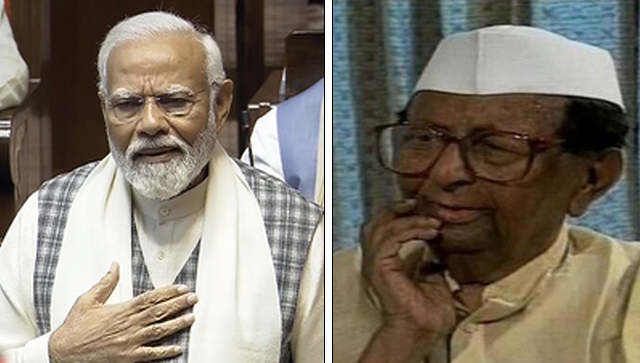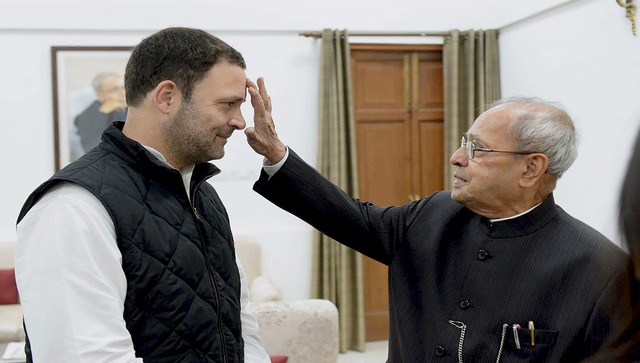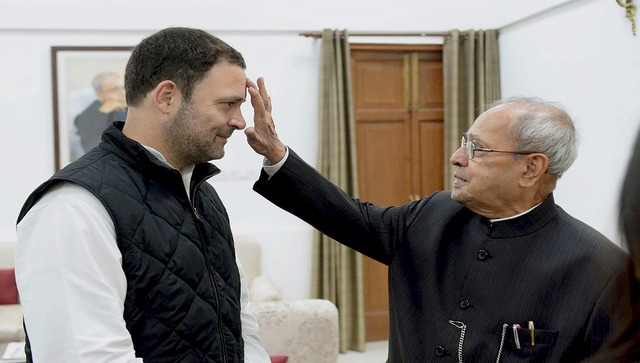While the Congress party is eager to play down the element of bad blood between Finance Minister Pranab Mukherjee and Home Minister P Chidambaram, a close look at their written interactions in the last two years suggests a degree of coolness and distrust.
These letters, extracted through requests made under the Right to Information (RTI) Act, may have gone unnoticed in the hurly-burly of day-to-day ministerial wrangling earlier. But in the context of the 25 March letter sent by the finance ministry to the PMO claiming that Chidambaram could have stopped A Raja on spectrum allocations if he so wanted, the correspondence becomes relevant. The finance and home minister do not come across as people who get along well with one another.
In these letters, the home minister is seen as begging for funds from Mukherjee, but the latter gives him vague assurances and bureaucratic replies. Mukherjee also seems to suggest that the home minister’s demands were not entirely reasonable.
See letters …. Chidambaram To Pranab More interestingly, the RTIs filed with the finance ministry did not yield any of Mukherjee’s correspondence with the PM, but a crucial letter from Chidambaram to the PM dated 15 January , marked ‘secret’, is made public. Among other things, this letter from Chidambaram on spectrum pricing – sent five days after A Raja issued 122 letters of intent to various parties - asks the PM to treat past issues on spectrum as a “closed chapter”, which seems like a covert nod to Raja’s decisions. This showed Chidambaram in bad light.
The finance ministry’s 25 March note, which gives the “chronology of basic facts relating to pricing and allocation of 2G spectrum,” also puts Chidambaram squarely in the dock even though Mukherjee now says it was drafted by an inter-departmental group and not just the finance ministry.
While Mukherjee is now distancing himself from the note by saying that it was given away by the PMO in reply to an RTI query, the fact is the 15 January note of Chidambaram came directly from the finance ministry. This is further supportive evidence that the finance and home ministers do not see eye to eye on many issues.
In two separate RTIs to the ministries of finance and home, this reporter had sought copies of letters exchanged between the home minister, the finance minister and Prime Minister Manmohan Singh from 2008 to date.
Continues on the next page..
From the replies received, it appears that Mukherjee has written only a couple of letters to Manmohan Singh since he took over in early 2009. The finance ministry refused to part with those letters on security grounds. The ministry, however, did not seem to find anything amiss in sending Chidambaram’s “Note on Spectrum Charges” in reply to the RTI.
But most of the Mukherjee-Chidambaram letters relate to budgetary allocations – with the latter pleading for more resources. The first of such letters was sent by Chidambaram to Mukherjee on 17 March 2010.
It read: “I wish to draw your kind attention to the budgetary allocations made to the ministry of home affairs (MHA) for 2010-11… To sum up, there is a meagre increase of Rs 184.82 crore under Grant 53 (Police) and there is a net reduction of Rs 51.56 crore under Grant 51. Hence, contrary to our expectations of a substantial hike in the allocation to MHA, we are left with insufficient funds in 2010-11. I am afraid that there are projects/programmes that are underway or on the anvil which require more money.’’
Then Chidambaram draws Pranab’s attention to an annexure, which lists out an additional requirement of Rs 3,213.76 crore to raise new battalions, operating NSG hubs, new airbases, raising Cobra battalions, procurement of helicopters, forensic labs, etc. The annexure also mentions that the Registrar General of India would require an additional allocation of Rs 923 crore to carry out the census, etc.
Pranab replies on 20 March 2010: “I would like to mention that the reduction apparent in Grant No 51 is mainly due to payment of arrears on account of implementation of Sixth Pay Commission recommendations in 2009-10, which is absent in 2010-11…Internal security being one of the main concerns of this government, the requirements of the ministry of home affairs would be considered on priority at RE (revised estimates)/supplementary stage. I would request you to instruct your officers to assess the requirements and availability of funds on a realistic basis and pose them at RE/supplementary stage.”
The hidden message: reduce your demands. See letters …. Pranab to Chidambaram Pushed to a corner, Chidambaram again writes on 5 August 2010 drawing Pranab’s attention to his earlier letter and the latter’s reply. “I feel that the extent of funds being provided at the first supplementary stage may be inadequate to meet our needs. However, we would try to cope with the shortfalls through reassessment and reprioritisation till the RE/second supplementary stage… If needs continue to exist which have to be met, and if savings are not enough, additional cash supplementary would be required. I have already given the assurance to organisations within MHA which are engaged in meeting the various challenging tasks that funds would (not) be a constraint for meeting their targets. I am sure you would agree with my stand. I also request that the needs of MHA for additional funds may be suitably considered at RE/second supplementary stage.”
Mukherjee’s reply on 19 August 2010 harps on making a “realistic” assessment: “I would like to assure you that any further additionality based on a realistic assessment keeping in view the requirement and availability of funds would be considered on a priority basis at the time of the finalisation of RE 2010-11.”
As a follow-up to his minister’s letter to the finance ministry, home secretary Gopal K Pillai sent a detailed letter with annexure (dated 11 October 2010) listing out the demands for additional funds.
When the finance ministry didn’t react to Pillai’s letter, Chidambaram shot off another letter dated 11 November 2010: “In a communication of this ministry dated 11 October 2010, the heads under which additional funds are absolutely necessary for the functional requirements of this ministry, with complete justifications, were indicated to the ministry of finance… I would like to request you that the above additional requirements of this ministry may be favourably considered.”
When the budgetary allocations requested by Chidambaram were not happening, Chidambaram wrote yet another letter dated 20 July 2011, giving minute details on why the home ministry needed additional funds. And in the end he requests Mukherjee’s personal “intervention so that the requirements projected by MHA in the first batch of supplementary are favourably considered.”
In between, Chidambaram had also written a letter to Mukherjee dated 11 July 2011, but the home ministry didn’t provide that letter. The finance ministry, however, provided Pranab’s reply, which says: “With regard to the scheme for modernisation of police force, I would like to point out that while examining this proposal, ministry of finance has raised concerns over the existing high level of unspent balances with states under this scheme. I request you to address this concern before making any further releases to states under this scheme.”
In other words, the answer was no.
The home ministry also declined to give some letters exchanged between Mukherjee and Chidambaram on security, security issues in Kashmir and personal security-related issues. But the budgetary letters released through RTI confirm that while they were polite in their exchanges of letters, they could not agree on issues for more than a year. Even small issues like the (payment) of Hard Area Allowance to employees posted in Nicobar islands became the subject of disagreement between the two. They exchanged letters on such petty issues.
The unstated conflict between the two wasn’t the invention of the media, as Congress spokespersons claim. It was for real.


)




)
)
)
)
)
)
)
)